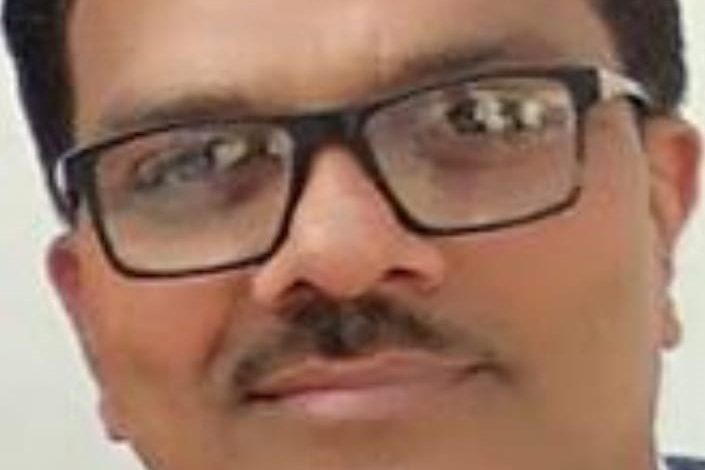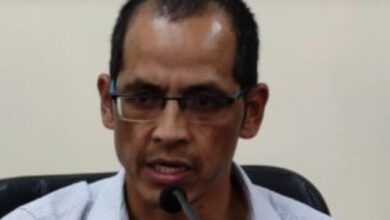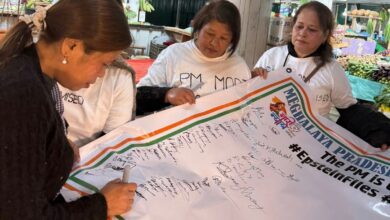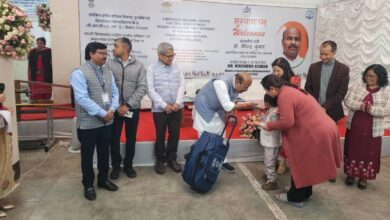
Shillong, May 20: The camp office of NEHU Vice Chancellor PS Shukla on Tuesday said the May 21 Academic Council meeting is illegal and pointed that only the meeting on May 23 is property convened.
Full text of the statement below
Clarifying the Legal Position of the Vice-Chancellor and Academic Governance at NEHU
“A controversy has erupted at North-Eastern Hill University, Shillong, regarding the legality and authority surrounding an “adjourned” Academic Council (AC) meeting scheduled by the Pro Vice-Chancellor, Prof. Sherwin Sungoh, on May 21, 2025. While the NEHU Teachers’ Association (NEHUTA) has expressed full support for Prof. Sungoh, citing provisions under NEHU Statute 2(A)(5)(i), this move has been sharply contested by legal experts, senior faculty members, and the office of the current Vice-Chancellor, Prof. P.S. Shukla, who remains the lawful head of the university under the NEHU Act and Statutes.
According to the governing statutes of NEHU, the Vice-Chancellor remains the principal executive and academic officer of the university. As per Statute 2(A)(2), the Vice-Chancellor is deemed to be on duty as long as he is discharging his responsibilities. Prof. P.S. Shukla has been working from the NEHU Guest House, which is an official university property, operating as a camp office. From this location, he has been continuously engaging with university officials through electronic communication and virtual platforms. He is actively participating in various academic and administrative programs, attending meetings, and maintaining regular engagement with teachers. Contrary to the claims made by NEHUTA and circulated to faculty members, Prof. Shukla’s work from the NEHU Guest House is legally and administratively valid. The assertions that he is “on unauthorized leave” are misleading and unfounded. Importantly, NEHUTA itself regularly refers to Prof. P.S. Shukla as a “persona non grata” on the NEHU main campus, publicly preventing his physical entry into his designated office in Shillong. This unprecedented and unlawful act of barring the sitting Vice-Chancellor from the university’s headquarters, despite him being the duly appointed executive authority under the NEHU Act and Statutes, is both outrageous and deeply troubling. At the same time, the very same group is accusing him of dereliction of duty for not being physically present on campus. This blatant contradiction not only exposes the inherent hypocrisy in NEHUTA’s arguments but also highlights a deliberate and personally motivated attempt to mislead the academic community, destabilize institutional governance, and subvert the rule of law. The fact remains that Prof. Shukla is discharging his responsibilities from an official NEHU property, fully connected with university operations, and continues to engage actively in academic and administrative affairs. Such a manufactured narrative, riddled with inconsistencies, reflects a broader strategy to usurp legitimate authority for personal or factional gain, which comes at the cost of institutional integrity and student welfare.
Legal experts point out that only the Vice-Chancellor, or in his absence, with appropriate authorisation by the competent authority, can convene a meeting of the Academic Council. No such authorisation has been granted for the May 21 meeting, rendering it unauthorized and without legal sanctity. Prof. Shukla, exercising his legitimate authority, has already called for an urgent and properly constituted meeting of the Academic Council on May 23, 2025.
The current situation stems from repeated attempts by a small faction within NEHUTA to exert extra-constitutional control over university affairs. Under the pretext of protecting institutional interests, they have sought to marginalize lawful authority and bypass established statutory procedures. Over the past six months, NEHU has seen an alarming rise in acts of intimidation, coercion, and manipulation of institutional processes. Several teachers have reported being pressured to align with the stance of NEHUTA, with dissenting voices allegedly being silenced through threats and social ostracization.
It must also be noted that any attempt to hold a statutory meeting like the Academic Council outside the legal framework not only undermines the governance structure but also poses a serious threat to the academic integrity of the university. Such a move may result in decisions being rendered null and void, affecting examinations, admissions, curriculum approvals, and policy decisions, directly harming the students NEHUTA claims to represent. The camp office of the Vice-Chancellor has appealed to the broader academic community to resist being drawn into what appears to be a politically motivated power struggle. The primary stakeholders of NEHU—its students, faculty, and staff—deserve a transparent, rule-based, and accountable administration. Decisions must be taken in accordance with the NEHU Act, UGC regulations, and Government of India directives to preserve the sanctity of the institution. The unlawful attempt to conduct an AC meeting on May 21, 2025, not only violates the rules but also disrupts academic planning and undermines student welfare and career development. The students and faculty must see through the misleading narratives being circulated and demand institutional decision-making based on legality”.





